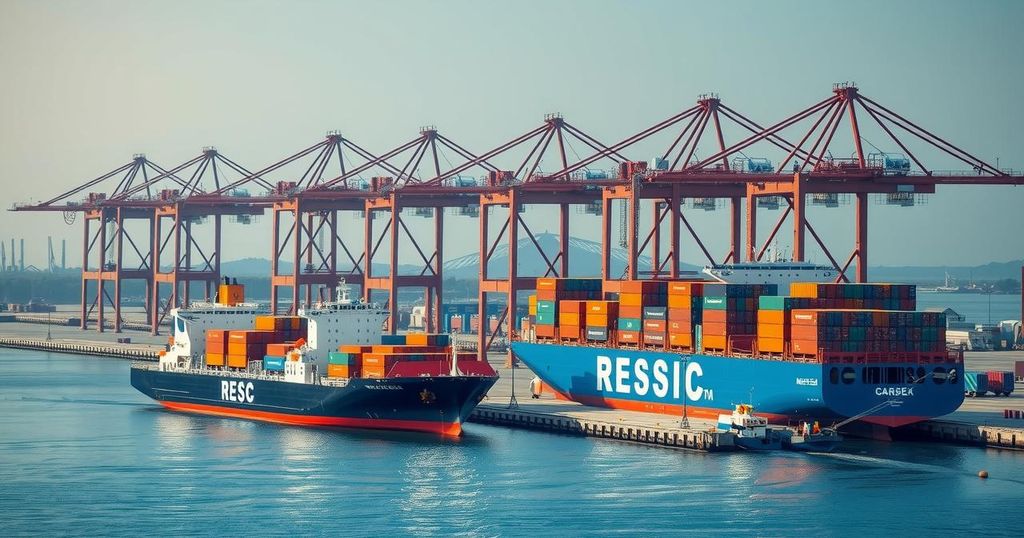President Trump has implemented tariffs on Canadian, Mexican, and Chinese imports, eliciting retaliatory responses from Canada and Mexico while China considers its options. Tariffs aim to address national security concerns relating to drug trafficking and immigration. Economic ramifications are expected to affect growth and inflation globally.
US President Donald Trump has enacted new tariffs on imports from Canada, Mexico, and China, prompting significant international backlash. He signed executive orders imposing a 10 percent tariff on Chinese goods and a 25 percent tariff on products from Canada and Mexico, with limited exceptions. The justification for these tariffs stems from accusations against these nations of insufficient efforts to combat illegal immigration and drug trafficking into the United States.
The tariffs reflect ongoing tensions in U.S. trade policy, particularly under Trump’s administration. By invoking the International Emergency Economic Powers Act, Trump framed the tariffs as a response to national security concerns related to drug trafficking and immigration. Canada and Mexico, crucial trading partners, have expressed strong opposition, reflecting fears of economic fallout and disruptions within established trade agreements.
In conclusion, the tariffs initiated by President Trump have led to reciprocal measures from Canada and Mexico, with both countries imposing tariffs on American goods. China has chosen a measured response, signaling its intentions to challenge the tariffs at the WTO. Economic experts warn that these actions may inflate prices and slow economic growth across the board, underscoring the potential for global trade disruptions.
Original Source: www.aljazeera.com






